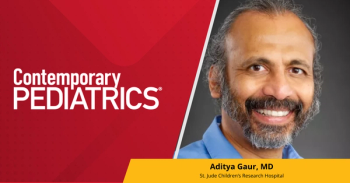
Study into long-term outcomes of COVID-19 in kids launched
The National Institutes of Health announced the launch of a long-term study into the long ranging outcomes of recovering from COVID-19 in children, adolescents, and young adults.
Twenty months into the pandemic, researchers have begun to investigate the long-term effects of COVID-19. The National Institutes of Health’s Clinical Center has launched a large, long-term
Because it was believed, in the initial phase of the pandemic, that COVID-19 was mostly leaving children unscathed, research on the long-term effects of the disease in this population was scant. In addition to the lack of vaccine-protection for many children over the last several months (although many children aged 5 to 11 years are now getting vaccinated), the possibility of multisystem inflammatory syndrome in children, which can occur in children who were asymptomatic, make understanding the impact of a COVID-19 infection highly important.
Investigators are recruiting children, adolescents, and young adults aged 0 to 21 years for this study. A person may be eligible to enroll if he or she had tested positive for COVID-19 in the past, even if the infection was asymptomatic. Baseline samples, including stool, urine, blood, and nasal swabs will be collected by investigators. A genetic analysis may be performed to identify possible genetic risk factors for severe outcomes. Medical scans of the heart and other organs will be taken as well at baseline. Household members who do not have a history of COVID-19 will be asked to enroll to form a control cohort. Investigators hope to enroll a total of 2000 participants.
Over the course of 3 years, participants will attend follow-up visits at 3 months postinfection, 6 months postinfection, and then every 6 months for a total of 3 years if they have enrolled within 12 weeks of a COVID-19 infection or positive test. For participants who enroll more than 12 weeks, they will have clinic visits scheduled every 6 months for 3 years. During these follow-up visits, participants will supply more samples and receive more scans, along with questionnaires. Reinfection and adverse events that may be tied to the COVID-19 infection will be recorded. It’s anticipated that the research will take roughly 6 years to be complete.
When reached for comment on the launch, editor-in-chief Tina Q. Tan, MD, FAAP, FIDSA, FPIDS, said, "there is very limited data on the long-term effects of COVID-19 in the pediatric population. This study is incredibly important and will provide critical information and a detailed picture of COVID-19’s effects on the overall health of children, their development and immune responses to infection, and their overall quality of life in the years following infection. This information will be very important in determining the optimal timing and use of COVID-19 vaccination.”
Reference
1. National Institutes of Health. Long-term study of children with COVID-19 begins. Published November 15, 2021. Accessed November 17, 2021.
Newsletter
Access practical, evidence-based guidance to support better care for our youngest patients. Join our email list for the latest clinical updates.






